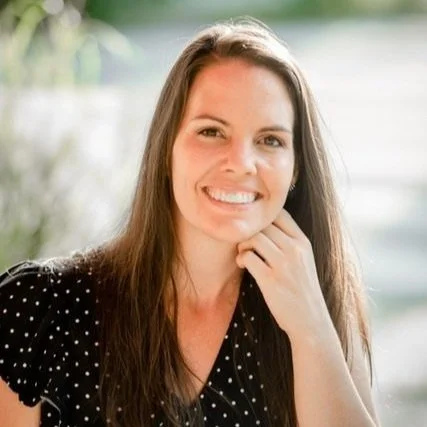On Loving Every Part of You
by Jennifer McDowell
I talk a lot about love in leadership. I believe love is the central quality leaders at all levels need–whether they’re leading at work or at home. Finding a community of others who are dedicated to the same pursuit and growing together has been a gift. Being asked to contribute to this blog reminded me of my own, never-ending self-loving journey.
The Voice of Doubt
When I sat down to write this, I was plagued with doubts. Thoughts like, “Do you really have anything to offer? What if you’re just not good enough?” went through my mind and stopped my fingers from typing.
Suddenly, it was like I was transported right back to third grade when Ms. Carrol introduced that we were going to start choosing our own spelling words each week. I knew I couldn’t let her down, so I opened the dictionary and looked for the hardest ones, choosing words like nauseous, anxious, and irreplaceable. I thought those would be good enough.
In this case, there was no pre-written dictionary of articles or stories inside my brain that I could choose from. I let the weeks go by, and finally, unable to produce anything and totally reinforcing my own belief about myself, I declared, “Nope. Can’t do it.”
As soon as I decided internally to quit, I felt the memory of being on stage at my fifth-grade closing ceremony rise to the surface. There I was, invited to give the closing speech after winning an essay writing contest about transitioning from elementary to middle school. I unfolded my paper at the podium, looked out at the crowd of adoring parents, back at my paper, burst into tears, and ran right off the stage.
My principal walked over to me and knelt down. She said, “Your speech is beautiful and everyone would like to hear it. Would you like me to read it while you stand next to me?” I nodded, and we walked back together. I softened, and we got through that moment together. That was love.
The Voice of Doubt Grows With Us
As an adult, that not-good-enough, freeze-before-people-see-how-bad-you-are voice followed me to the workplace and into my relationships, causing lots of problems. This time, I didn’t have a principal to hug me and tell me it’ll be OK, so I was on my own in trying to get rid of this problematic inner voice.
I tried banishing it. “Get out of here! I don’t need you telling me I’m not good enough!” That pushed it into the shadows, and caused it to masquerade itself as heartburn and stomach aches before big deadlines.
I tried proving I was good enough. “Look at all these degrees I got! See! Do you believe me now?” That made this voice voracious for praise at any cost.
Once, after a significant work performance problem, I even quit my job and fled all the way across the country to start a new life, in order to avoid facing the feeling of failure. The voice came with me and convinced me to lower my aspirations.
Now, years later, here I found myself again with the voice freezing up my writing fingers. Except this time, if you’re reading this, something’s clearly changed. I moved through the stuckness into creativity, but how?
Tuning Into The Voice of Doubt to Reveal Love
Five years ago I was introduced to Internal Family Systems coaching and therapy while studying to become a Certified Professional Coach. This approach—which blends the deepest love, compassion, and systems of thinking—transformed how I view my own inner landscape, view the behaviors of others, and is the reason I stand for love as the single most important leadership principle. There are three important pieces to understand.
We All Have Parts, But Our Nature is Wholeness
Dr. Richard Schwartz, the founder of Internal Family Systems therapy, describes our human essence as Self. We all are naturally Self:this unbroken, completely whole being, recognizable by its qualities of calm, creativity, courage, connectedness, compassion, clarity, and curiosity. Some simplify this to say that Self is love.
Experiences in our lives activate Parts. Parts may show up as inner voices, or in some other way. These parts of us can be fearful, anxious, or love to binge-watch Netflix instead of finishing something by an important deadline. They try to get our attention and block our access to Self. Imagine clouds forming in front of the sun, creating shade. We may lose temporary access to the warmth of Self, but it is never gone.
All Parts Have a Noble Purpose
Sometimes Parts behave in unhelpful ways, but it’s important to recognize their intentions are noble. They exist either to prevent us from feeling the pain that a younger version of us felt—by managing our lives in such a way that we avoid getting hurt again—or they employ drastic measures to get rid of the pain when felt. Parts want us to be safe and free of hurt, and they take their roles very seriously. My own “not-good-enough” Part tried lots of techniques, like making me believe I can’t do something before I even try, running away from failure, and causing physical illness to prevent me from trying new things in order to ensure I never, ever felt the shame of being rejected again.
Love Opens the Door to Healing
Next time you notice a part of you is activated, instead of blaming, shaming, or ignoring its call for your attention, tune into it instead. Notice where it’s showing up in your body as a sensation or feeling. With gentleness, acknowledge its presence, “I hear you.” Ask it to share its message with you, “What are you afraid will happen if. . .” and bear witness to its purpose. Extending gratitude toward this part helps it feel seen and acknowledged. This is the love it needs to open the door to healing, so this Part may go on to give you the space you need to lead from Self. From love.
Our Commission
As with all inner work, turning inward has the power to transform how you extend outward to others. Let this journey of leading from love not live only in the workplace, but also in the most sacred of places we all inhabit: our own bodies.
Jennifer McDowell is a certified leadership coach and facilitator who helps people step into self-leadership so that they can further excel in other-leadership. She is an evangelist of the notion that one cannot lead others effectively until they are able to lead themselves. Jennifer’s mission is to spread the good news that it’s possible to move away from perfectionism, urgency, and individualism and turn towards compassion, dignity, and justice. That’s why after 15 years in community organizing and nonprofit organizations, she founded Common Good Coaching and joined Light Labs to support leaders and visionaries turn toward themselves and gather as communities to reach that end.






